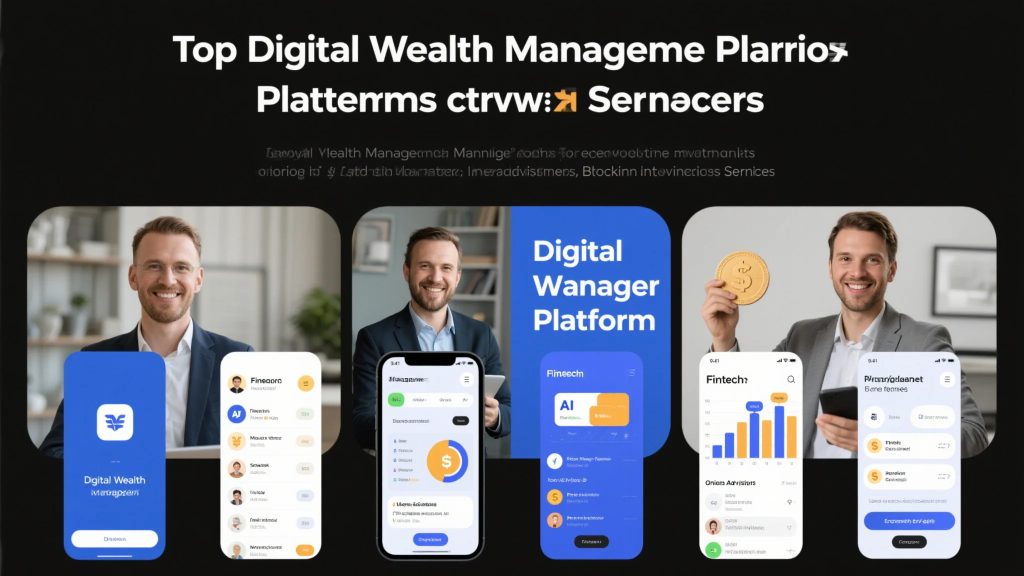
Top Digital Wealth Management Platforms Compared
The Evolution of Digital Wealth Management Platforms
The financial services industry has witnessed remarkable transformation with the emergence of digital wealth management platforms that combine cutting-edge technology with personalized financial advice. These platforms have disrupted traditional wealth management by offering sophisticated investment tools accessible to both retail investors and high-net-worth individuals. Unlike conventional services that required minimum account balances and charged hefty fees, modern digital solutions provide professional-grade portfolio management at significantly lower costs while maintaining high standards of security and performance.
What sets apart leading fintech personal finance apps is their ability to integrate various aspects of financial life into a unified dashboard. Users can monitor investments, track spending patterns, analyze cash flow, and receive personalized recommendations all within a single interface. This holistic approach to money management represents a paradigm shift from the fragmented financial tools of the past, enabling individuals to make more informed decisions about their complete financial picture rather than focusing on isolated accounts or investment products.
The Role of Artificial Intelligence in Modern Investing
Advanced AI financial planning tools have become the backbone of contemporary digital wealth platforms, offering capabilities that extend far beyond basic robo-advisory services. These intelligent systems leverage machine learning algorithms to analyze vast amounts of market data, identify emerging trends, and adjust investment strategies in real-time. More importantly, they can understand individual investor behavior patterns, helping to mitigate common psychological pitfalls like emotional trading or herd mentality that often lead to suboptimal investment outcomes.
The most sophisticated online investment advisors now incorporate predictive analytics that can forecast potential market movements and economic scenarios with remarkable accuracy. By combining traditional fundamental analysis with alternative data sources and sentiment indicators, these platforms provide investors with a comprehensive view of market dynamics. This technological edge allows for more proactive portfolio management, where adjustments can be made in anticipation of market shifts rather than simply reacting to events after they occur.

Blockchain Technology Enhancing Financial Services
The integration of blockchain in financial services has introduced unprecedented levels of transparency and security to digital wealth management. Distributed ledger technology enables tamper-proof record keeping of all transactions while smart contracts automate various aspects of portfolio rebalancing and asset allocation. This technological foundation not only reduces operational costs but also minimizes the potential for human error or manipulation in the investment process.
Leading digital wealth management platforms are leveraging blockchain to create more efficient settlement systems, instant cross-border transactions, and fractional ownership of traditionally illiquid assets. These innovations are democratizing access to investment opportunities that were previously available only to institutional investors or required substantial capital commitments. The immutable nature of blockchain records also provides investors with greater confidence in the integrity of their financial data and the accuracy of performance reporting.
Personalization and Customization in Digital Finance
Modern fintech personal finance apps excel in their ability to deliver highly personalized financial guidance tailored to each user’s unique circumstances and goals. Through sophisticated algorithms and continuous learning mechanisms, these platforms can adjust recommendations based on life events, changing financial situations, or shifts in risk tolerance. This dynamic approach represents a significant advancement over static financial plans that required manual updates and periodic reviews with human advisors.
The next generation of AI financial planning tools goes beyond simple investment advice to offer comprehensive life planning capabilities. These systems can model various career paths, retirement scenarios, educational funding options, and major purchase timelines to help users visualize the long-term impact of their financial decisions. By incorporating behavioral economics principles, the platforms can also identify and address psychological barriers that might prevent users from achieving their financial objectives.
Security and Regulatory Considerations
As online investment advisors handle increasingly sensitive financial data and assets, security remains a paramount concern for both providers and users. Leading platforms employ multi-layered security protocols including biometric authentication, end-to-end encryption, and real-time fraud monitoring to protect user accounts. The decentralized nature of blockchain in financial services adds another layer of protection by eliminating single points of failure and making unauthorized alterations to transaction records virtually impossible.
The regulatory landscape for digital wealth management platforms continues to evolve as authorities work to balance innovation with consumer protection. Compliance with financial regulations remains a key differentiator among providers, with top platforms investing heavily in legal expertise and compliance infrastructure. Users should prioritize platforms that clearly disclose their regulatory status, custody arrangements for client assets, and insurance protections in case of unforeseen events.
The Future of Digital Wealth Management
The trajectory of fintech personal finance apps points toward even greater integration with users’ complete financial ecosystems. Future platforms will likely incorporate real-time data from banking relationships, credit profiles, insurance policies, and even health information to provide truly holistic financial guidance. The most advanced AI financial planning tools may eventually predict financial needs before users recognize them, offering proactive suggestions to optimize financial well-being throughout all life stages.
As technology continues to advance, online investment advisors will likely incorporate more immersive interfaces using augmented reality and natural language processing to make complex financial concepts more accessible. The combination of artificial intelligence, blockchain verification, and big data analytics promises to create wealth management solutions that are not only more efficient and cost-effective but also more aligned with individual values and long-term aspirations than ever before.


